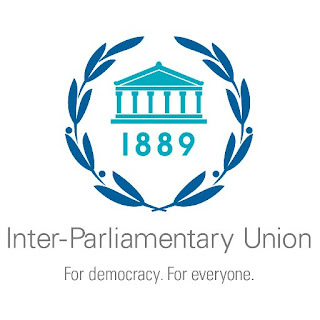India seems to have deliberately extended the visa of Sheikh Hasina, to a former democratically elected autocratic prime minister to stay comfy at a two-room safe house in a military base at Delhi.
A reputed Delhi-based Hindustan Times writes that extending the visa for another six months is unprecedented. This has annoyed the five-month-old Interim Government of Nobel laureate Prof Muhammad Yunus.
The news was another dent amid growing tension between the two countries after the fall of Hasina in early August last year. She fled to India after a bloody student uprising. India seems uncomfortable providing asylum and its relationship with neighboring countries has turned from sweet to sour.
Officials close to the Chief Advisor’s (Yunus) office said they did not expect but were not surprised that Delhi offered Hasina to live in exile, amid a call for her extradition.
Dhaka has officially asked Delhi through diplomatic channels to extradite Hasina to face the music of justice for committing crimes against humanity. She has been accused of ordering law enforcement to shoot and kill unarmed students and protesters during the bloody Monsoon Revolution last year July-August.
The gesture confirms that India is unwilling to extradite Hasina. Indian media is harping that she is unlikely to get a fair trial if she stands on the dock for crimes of putting to deaths of hundreds of protesters.
An official, who requested to remain anonymous, as the person is not authorized to speak to journalists, said the latest decision to extend the visa gives a strong message.
The message was loud and clear that India does not wish to normalize the bilateral relations with its neighbor, which has a shared history of and common heritage originating from the Bengal (West Bengal became an Indian state and East Bengal became Bangladesh) region, linguistic and cultural ties, passion for music, literature and the arts.
The half a century of trade, commerce, regional infrastructure development, transit, and people-to-people contacts will fall flat. The gesture confirms that India is unwilling to extradite Hasina.
Unfortunately, India could not reconcile the fact that Hasina is no longer at the helm of Bangladesh's affairs. Political observers here argue that South Block in New Delhi foolishly kept all its eggs in Hasina's basket. Such actions contradict ancient India’s visionary strategist Chanakya’s wisdom on war and peace with the neighboring states.
Political stalwarts among the ruling Bharatiya Janata Party (BJP) do not believe that Hasina is a ‘spent fuel’ and cannot be replenished or recharged to lead the new population of 51 million Gen-Z in a country of 174 million.
Thousands of Gen-Z, students from college and university students in the capital and countryside sparked the revolt which forced the Awami League despots from power to crumble.
The opposition Bangladesh Nationalist Party (BNP), despite several attempts to unseat Hasina through violent anti-government movements in the last 15 years, miserably failed. They could not dent the invincible Hasina regime.
Delhi failed to acknowledge the Monsoon Revolution which killed more than a thousand students and protesters in police firing and armed vigilantes recruited from Awami League’s student and youth organizations which clashed with students on the educational campuses.
Political historian Mohiuddin Ahmad said he has a feeling if Hasina is brought back from India, the country will plunge into chaos and the distraught Interim Government will be overwhelmed.
Thousands of students and protesters would march the streets of the capital and elsewhere demanding Hasina to be punished immediately. Many journalists covering politics echoed with Ahmad that the presence of Hasina in the safest custody would turn into political pressure for the Yunus administration.
India despite being the largest functional democratic nation, accepted Hasina’s flawed elections in 2014, 2018 and 2024 sans the participation of the mainstream opposition.
Delhi was conspicuously silent when appalling human rights violations were being committed, including extra-judicial deaths, enforced disappearances and confinement of political opposition, critics and dissidents in secret prisons by security agencies.
With credible investigations, the Human Rights Watch and Amnesty International have exposed the dark era of Hasina’s regime. It was picked up by international media, including several independent Indian media. The political language of India did not change.
The media was another soft sector and was throttled by draconian cybercrime laws. Many journalists were arrested and tortured which was reported by Reporters Without Borders (RSF), Committee to Protect Journalists (CPJ), and the International Federation of Journalists (IFJ).
Hasina’s government refused to probe into the allegations of enforced disappearance, secret prisons and extra-judicial deaths after several requests by the United Nations, European Union and other Western countries.
The former government instead blamed the BNP and Islamist party Jamaat-e-Islami for orchestrating the propaganda to tarnish the image of her regime. All through her tyrannical rule, India never raised questions nor was Hasina given any advice to act as a benevolent dictator.
Earlier, Prof Yunus urged India to ensure that Hasina remains quiet and not give sermons through social media which is being amplified by her loyalists living in the West. First ever India-Bangladesh Foreign Secretary-level meeting was held at Dhaka, which is believed to have melted some ice.
Prof Yunus and Indian Prime Minister Narendra Modi will likely meet in November on the sidelines of the BIMSTEC (Bay of Bengal Initiative for Multi-Sectoral Technical and Economic Cooperation) summit in Thailand.
BIMSTEC is India's brainchild to avoid SAARC (South Asian Association for Regional Cooperation) and bypass Pakistan for regional cooperation.
Until Yunus meets Modi at the end of the year nothing tangible could be achieved from the biggest neighbor India on bilateral relations and regional cooperation.
First published in the Stratheia Policy Journal, Islamabad, Pakistan, 09 January 2025
Saleem Samad is an award-winning independent journalist based in Bangladesh. A media rights defender with the Reporters Without Borders (@RSF_inter). Recipient of Ashoka Fellowship and Hellman-Hammett Award. He could be reached at saleemsamad@hotmail.com; Twitter (X): @saleemsamad




